Can the West stop the Vladimir Putin show?
Potential war in Ukraine is all about the ego of one man. How can the West stop a gangland bully for whom diplomacy means nothing?
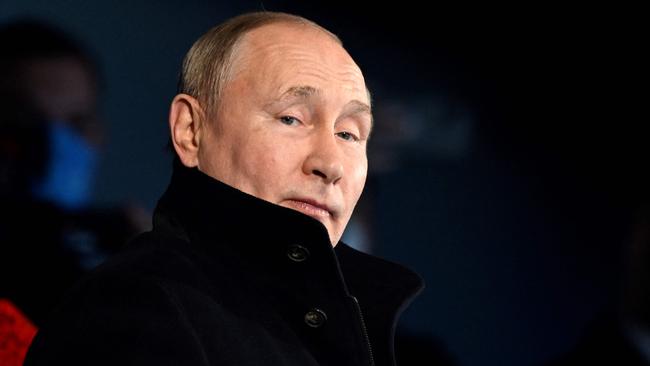
A curious habit is said to hold sway over Russian strongman Vladimir Putin. It dates back to 2011, when Colonel Muammar Gaddafi was caught hiding in a drainpipe and killed by his people on a dusty street near his home town.
Putin watched a smartphone video of the Libyan being bludgeoned as he was dragged through the streets. He has been replaying it obsessively ever since, grimly fascinated, it seems, by the spectacle of a fellow dictator’s demise at the hands of a baying mob.
In power for 22 years – and with no succession mechanism in place – an increasingly paranoid Putin, 69, wonders, no doubt, what the future holds for him and his kleptocratic regime. He is haunted by the spectre of violent upheaval, knowing that political change in Russia “can bring blood”, as one Kremlin watcher told me last week.
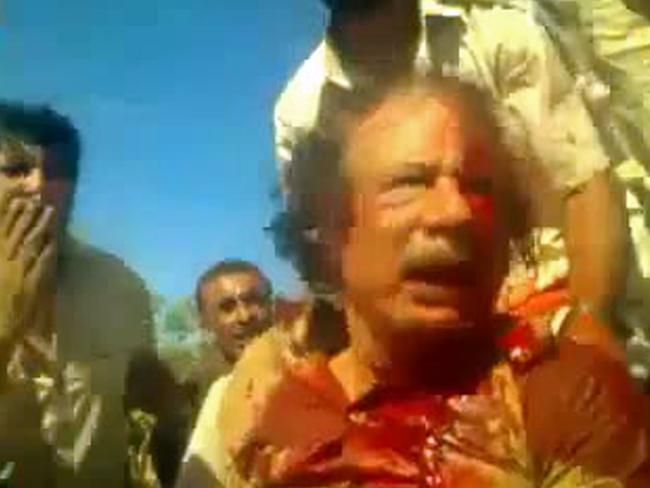
Ever since George W. Bush, a few months into his presidency, walked out of a 16th-century castle in Slovenia on a summer’s day in 2001 to announce he had looked into the eyes of Putin and “found him to be very straightforward and trustworthy” the West has repeatedly misread him.
A consequence of that is Russia’s giant military build-up around Ukraine. What may be an effort by Putin to revive his image, diverting a restless people’s attention from its privations, has put the rest of the world in a panic amid rising fears of a land war in Europe.
How should we deal with this increasingly isolated Kremlin strongman who is pulling all the levers of power himself like some Russian Wizard of Oz?
Diplomacy has gone nowhere. A recent series of visits to the Kremlin by foreign leaders and politicians, including French President Emmanuel Macron, who spent more than five hours talking to Putin across a vast table, and British Foreign Secretary Liz Truss, who was humiliated by her funereal Russian counterpart, Sergey Lavrov, served only to exemplify the gulf between them.
“I am disappointed that the conversation we are having turns out to be a bit like deaf talking to blind,” Lavrov sniped.
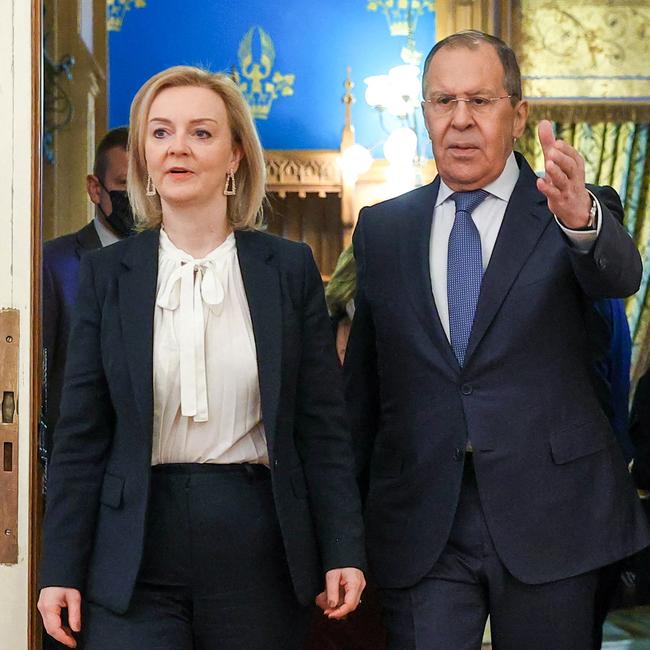
The brutal truth is Putin and his gang have the instincts of playground bullies, picking on weaklings – and to them, our politicians look soft. An intelligence source who once served in Colombia put it this way: “We shouldn’t be taken in by the suits and ties; they operate like a Colombian drug cartel. Putin’s the boss, the rest are his underlings. Diplomacy for them is, ‘Do what we want or we’ll kill you’.”
These Kremlin hardmen might respect a more muscular diplomatic approach, says the source, and an ultimatum: “We could give them two days to withdraw their forces from the border with the threat of punishing sanctions if they do not comply.”
Like Colombian drug lords, Putin and his oligarch cronies have amassed vast fortunes, much of the ill-gotten loot to be laundered through “Londongrad”.
The charge sheet is long. Putin is suspected of staging terrorist attacks on his own people, blowing up buildings to justify the Russian war in Chechnya that accelerated his rise to power; murdering opponents and meddling in foreign elections.
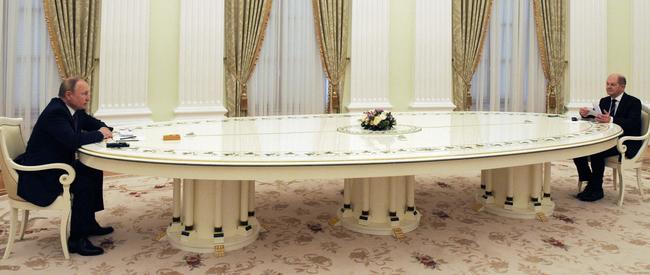
Now he seems poised to carve up Ukraine with what could be the largest land offensive since World War II.
In episodes ranging from Russia’s annexation of Crimea in 2014 to its attempt to poison defector Sergei Skripal with a nerve agent in Salisbury four years later, Moscow has always professed innocence to a risible, reality-denying degree. Things are similar now: NATO, not Putin, is to blame for the crisis over Ukraine.
This makes for difficult negotiations.
British Prime Minister Boris Johnson no doubt sympathises with Truss: one encounter of his with Lavrov when he was foreign secretary ended on a similarly discordant note.
“He went in applying his Etonian charm, which serves him no doubt in some settings, saying, ‘Come on, Sergey, we all want the same thing, freedom, prosperity for our people’,” said a diplomatic source.
Lavrov responded with a dark “granite gaze” that stopped Johnson in his tracks. “It was the moment he realised that this was not some debate at the Oxford Union.”
If Lavrov can freeze politicians with a single glance, Putin, a black belt in judo – and one of the few world leaders who can break a chair over another man’s back – is a master of intimidation.
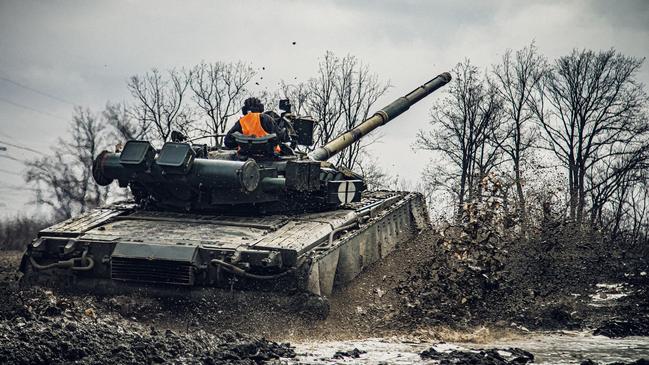
Once, after listening to a litany of complaints from Nicolas Sarkozy, then the French president, from the hunting down of Chechen dissidents to the murder of the journalist Anna Politkovskaya and the persecution of the gay community, Putin is reported to have riposted: “Keep talking to me like this and I will crush you.”
The fiercely competent former KGB officer has always enjoyed playing the strongman. He has been filmed fishing for pike, playing ice hockey and cuddling tigers in Siberia. He strips down to his swimming trunks in sub-zero temperatures to plunge, unflinching, into an icy lake, to mark Epiphany each year.
No one captured the West’s failure to grasp the reality of what it is dealing with better than Alexei Navalny, the Kremlin critic who survived an assassination attempt by state security agents before being imprisoned by Putin.
“Time and again the West falls into Putin’s traps,” he wrote in letters smuggled out to Time magazine recently.
“He issues some insane, laughable demands ... about how he and Biden need to sit down in a smoke-filled room and decide the fate of Europe like we’re back in 1944. And if the US doesn’t agree, he’ll ‘pull something’.”
He went on: “Instead of ignoring this nonsense, the US accepts Putin’s agenda. Just like a frightened schoolboy who’s been bullied by an upper-class man.”
Now, though, Putin’s posturing suddenly seems more dangerous – and the key to understanding it may be the gruesome Gaddafi video: it reminds the Russian leader why he must hold on to power. His fear was exemplified in the rejigging of the constitution allowing him to rule, in effect, for life; and in the bill he pushed through parliament awarding him and his family immunity from prosecution for any crimes.
“Twice in recent history, the whole Russian system collapsed in the face of popular protests,” said John Sawers, who was head of MI6 from 2009 to 2014. “Putin is determined it shouldn’t happen a third time. His biggest concern is regime security.”
Putin knows he cannot match the West in economic resources and weaponry. “If he plays his hand badly and the West mobilises against him, he knows he’s toast,” said General Sir Richard Barrons, a former British army commander.
He has played a weak hand well, instead becoming a master of “asymmetrical” warfare, his weapons of choice cyberattacks, disinformation and other skullduggery – the “grey area” of “hybrid warfare” that falls just below the threshold of armed conflict.
Yet still Putin feels at risk – and his sense of insecurity is at the root of today’s crisis. He is said to have taken the collapse of the Soviet Union in 1991 as a personal humiliation: his goal now could be “something transformational”, said Kristine Berzina of the German Marshall Fund in Washington. “Why would he want stability if border countries are becoming a model of everything he detests?”
He has been rattled by developments at home, where tens of thousands of Russians took to the streets demanding his resignation and the release from prison of Navalny last year.
Navalny, 45, had spent 18 days in a coma after state security agents smeared a nerve agent on his underpants. He bravely returned to Russia, humiliating Putin by exposing his pounds 1 billion Black Sea pleasure palace in a video that quickly notched up more than 100 million views.
For Sawers, Putin “won’t forget insults or embarrassment and wants to nail Navalny for personal reasons. He wants to make sure the oppositionist threat creating trouble on the streets goes away.”
In pursuit of this, while the world’s attention was focused on Ukraine, Putin put Navalny on trial last week on trumped-up embezzlement charges that could keep him locked up for another decade. Unusually, the trial took place in Pokrov penal colony No 2, where the prisoner is already serving a 2½-year sentence: the authorities are thought to have feared bringing him to Moscow might tempt protesters back onto the streets.
Allowed to address the “court”, Navalny said: “I don’t want these people in the Kremlin. They have been sitting there for decades. They are thieves.” He added, defiantly: “I’m not afraid.”
THE SUNDAY TIMES
More Coverage
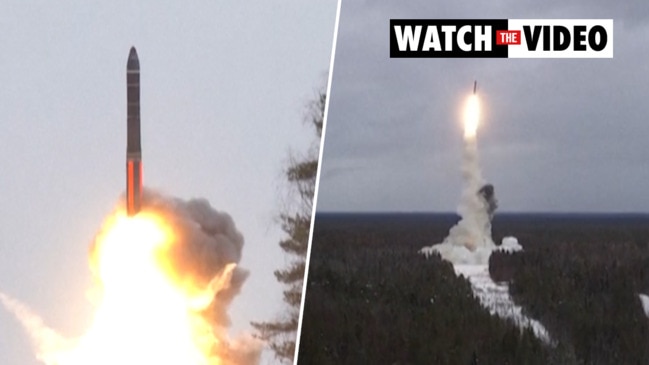

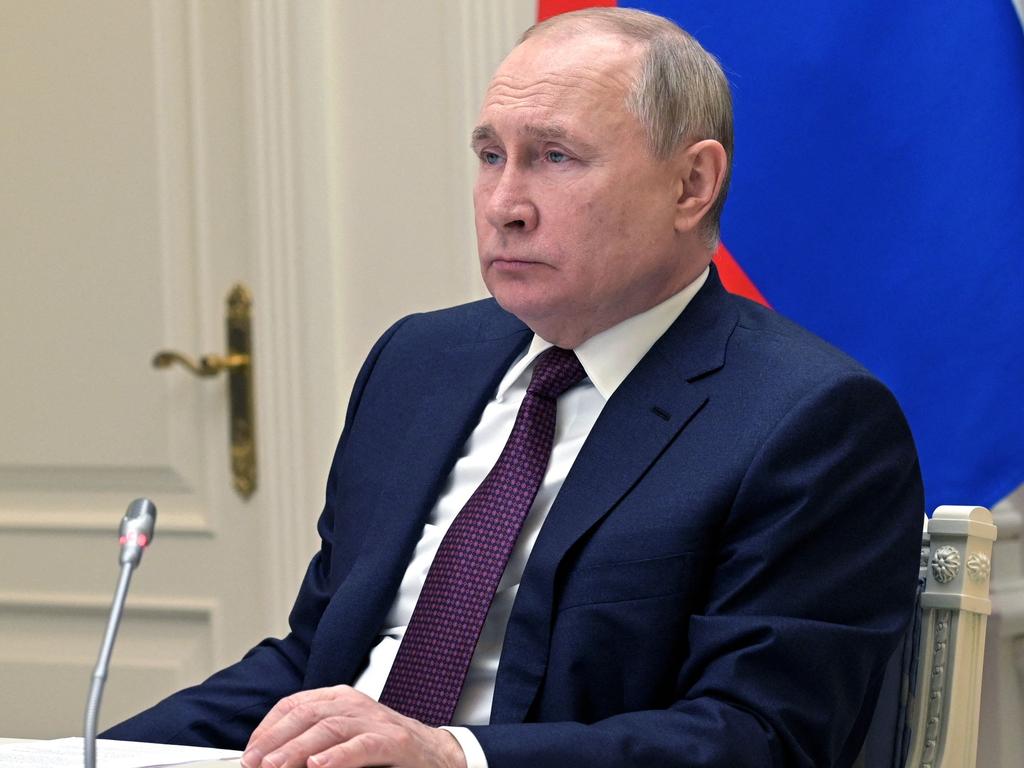
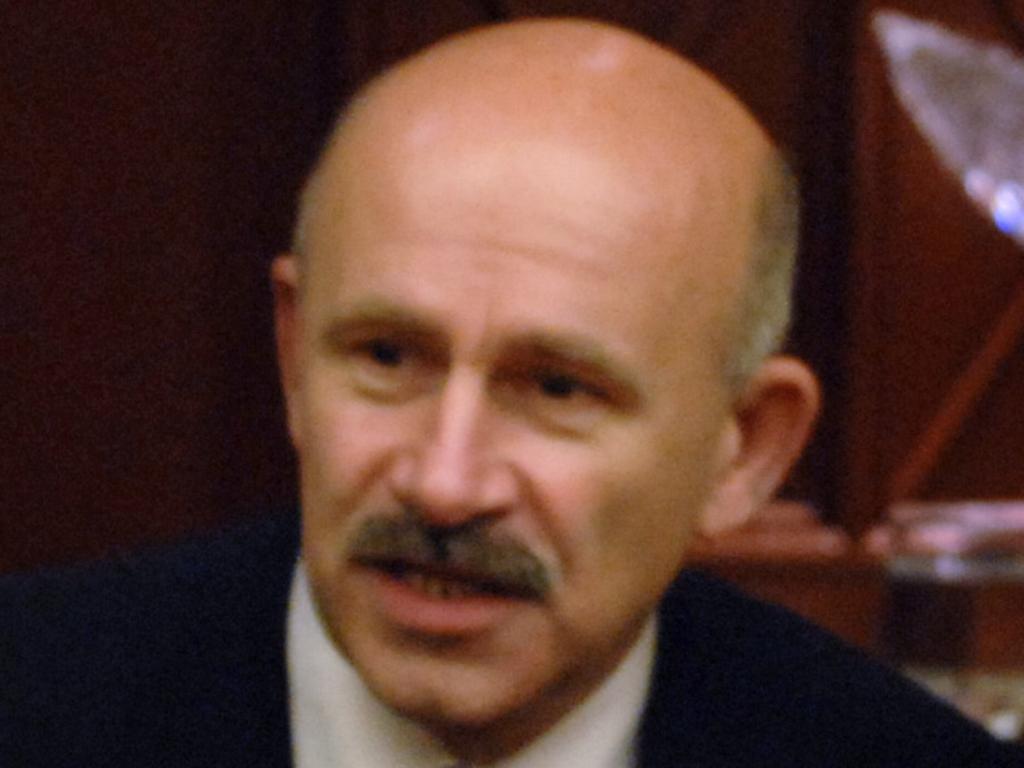
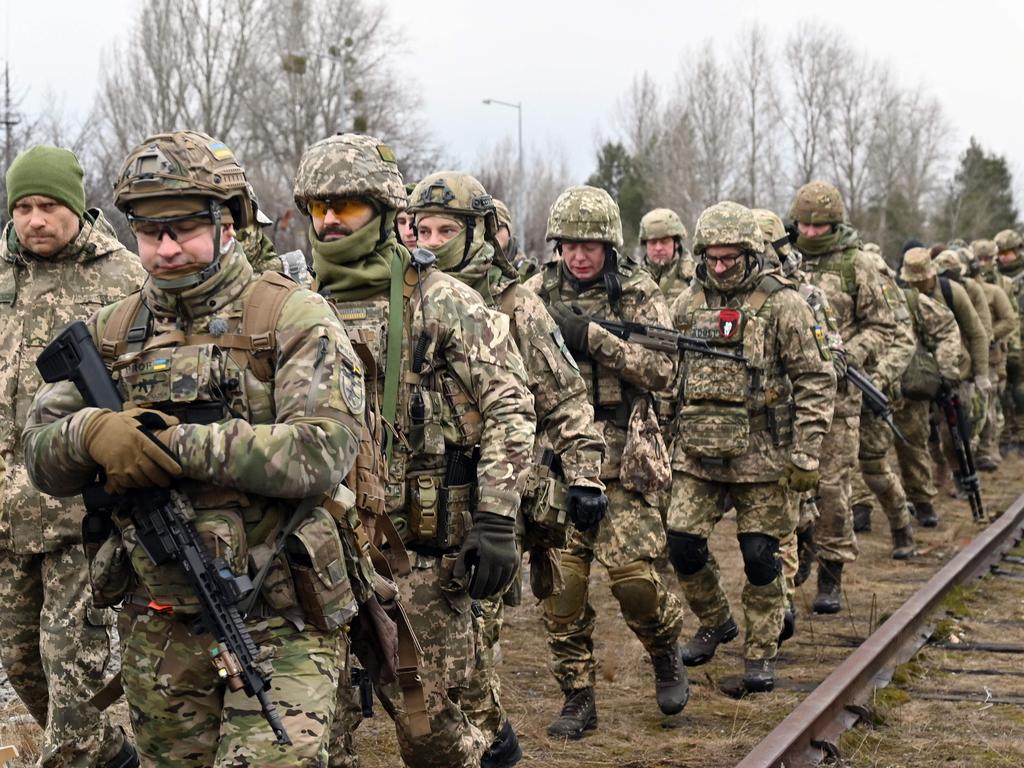
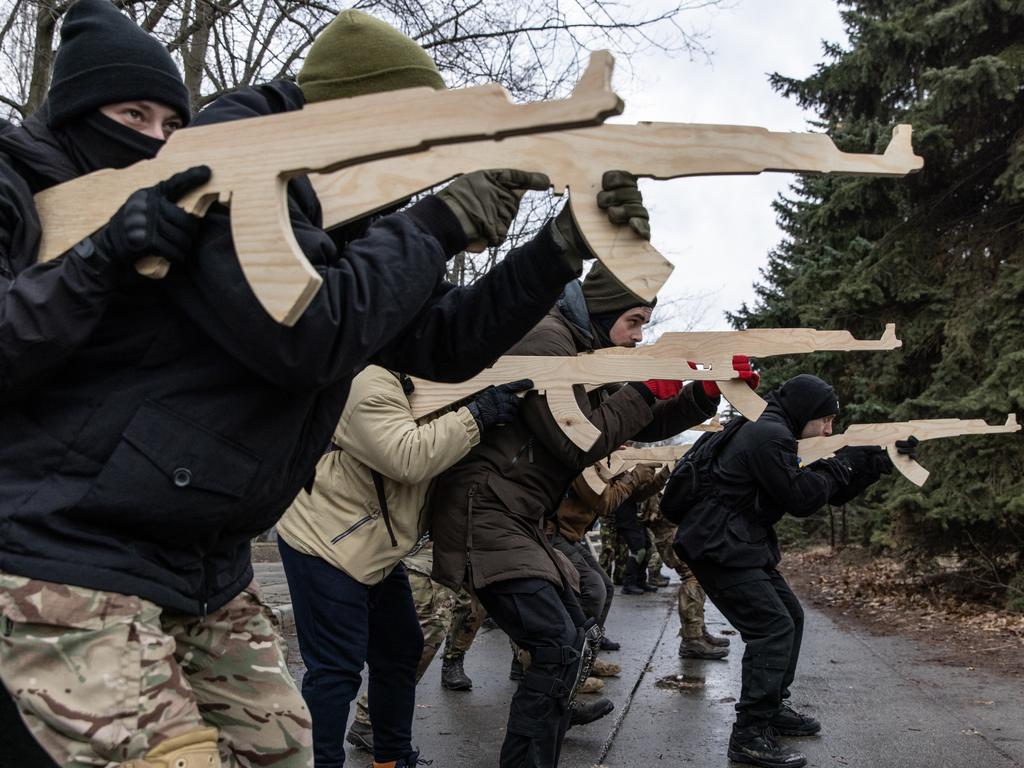


To join the conversation, please log in. Don't have an account? Register
Join the conversation, you are commenting as Logout